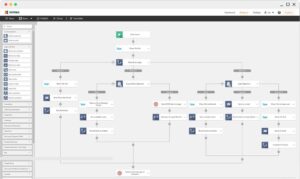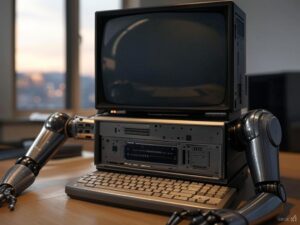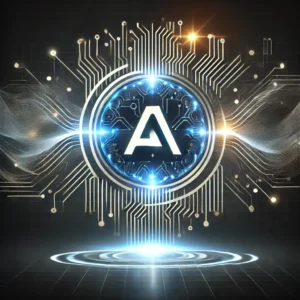
Revolutionizing Hospitality: How the Newest AI Agents Are Transforming Bars and Restaurants

The restaurant and bar industry has always been a hub of innovation, but recent advancements in artificial intelligence (AI) are pushing the boundaries of what’s possible. From taking orders to crafting cocktails, the newest AI agents are reshaping the way businesses operate and how customers experience dining.
In this blog post, we’ll explore the most notable changes in AI technology for the hospitality industry, spotlight businesses already embracing it, and dive into how customers and staff are reacting to these developments.
The Most Notable Changes in AI Technology for Bars and Restaurants
AI agents in the hospitality sector have evolved significantly, offering new capabilities:
- Voice Recognition and Natural Language Processing (NLP)
Modern AI systems can take orders through voice commands with remarkable accuracy. NLP allows AI agents to understand customer preferences, even if orders are complex or non-standard. - Advanced Chatbots and Virtual Assistants
AI chatbots are now equipped to handle everything from reservations to upselling menu items, creating a seamless customer experience. - Robotics Integration
Some AI agents are paired with robots, capable of preparing food, mixing drinks, or even serving customers. This reduces the workload on staff and ensures consistent quality. - Personalization Through Data Analytics
AI agents use customer data to make personalized recommendations. For instance, a customer who often orders red wine may be greeted with new wine suggestions tailored to their tastes. - Automated Inventory Management
AI-powered tools monitor stock levels, predict shortages, and automatically place orders with suppliers, reducing waste and ensuring smooth operations. - Dynamic Pricing and Menu Optimization
AI can analyze demand patterns and adjust pricing or highlight menu items to maximize profitability during peak times.
Who’s Using AI Agents in Bars and Restaurants?
- McDonald’s
McDonald’s is testing AI-powered drive-thru systems that take orders with near-human accuracy. Their partnership with tech companies like IBM showcases their commitment to integrating AI into operations. - Chipotle
Chipotle uses AI agents for phone and digital orders, ensuring accuracy and improving the speed of service during peak hours. - Starbucks
Starbucks leverages AI through its mobile app, offering personalized drink suggestions based on previous purchases and even factoring in local weather conditions. - Cecilia.ai
Cecilia.ai is an AI-powered robotic bartender that interacts with customers, takes drink orders, and prepares cocktails with precision. It’s gaining popularity at bars and event venues. - Pizza Hut
Pizza Hut has introduced AI chatbots for online ordering and is exploring voice-activated assistants to streamline customer service. - High-End Restaurants
Luxury establishments are incorporating AI agents to enhance customer experiences, such as recommending wine pairings or customizing dishes based on dietary preferences.
How Are People Reacting to AI in Bars and Restaurants?
Customers
- Positive Reactions: Many customers appreciate the faster service, personalized recommendations, and novelty of interacting with AI agents. In busy environments like bars or fast-food drive-thrus, AI reduces wait times and improves accuracy.
- Concerns: Some customers feel AI lacks the warmth of human interaction, especially in high-touch, service-oriented settings like fine dining.
Employees
- Positive Reactions: Staff members often see AI as a tool that reduces their workload, allowing them to focus on creating memorable experiences for guests. AI also assists in repetitive tasks like inventory management.
- Concerns: There’s some anxiety about job displacement, though many businesses emphasize that AI complements human roles rather than replaces them.
Business Owners
- Positive Reactions: Owners are excited about the cost savings, improved efficiency, and enhanced customer satisfaction that AI offers. Many see it as a way to stay competitive in a rapidly changing industry.
- Challenges: High initial costs for implementation and the need for staff training can be barriers for smaller businesses.
The Future of AI in Hospitality
The adoption of AI in bars and restaurants is just beginning. Here’s what the future might hold:
- Hyper-Personalized Dining Experiences
AI will continue to improve its ability to offer highly personalized experiences, tailoring everything from menu recommendations to ambiance based on individual preferences. - AI-Powered Bartenders and Chefs
As robotics and AI improve, fully automated kitchens and bar stations may become more common, particularly in fast-paced or high-volume establishments. - Immersive Customer Interactions
AI agents could integrate with augmented reality (AR) to create interactive dining experiences, such as virtual sommelier recommendations or guided cocktail-making classes. - Sustainability
AI will play a key role in reducing food waste by better predicting demand and optimizing inventory management.
Conclusion
The newest AI agents are revolutionizing the bar and restaurant industry, offering unprecedented efficiency, personalization, and innovation. While there are still challenges to address, such as balancing automation with human touch, the potential benefits are enormous.
For business owners, now is the time to explore how AI can enhance operations and delight customers. For customers, the dining experience is becoming more exciting and tailored than ever before.
Share this content:



















Post Comment